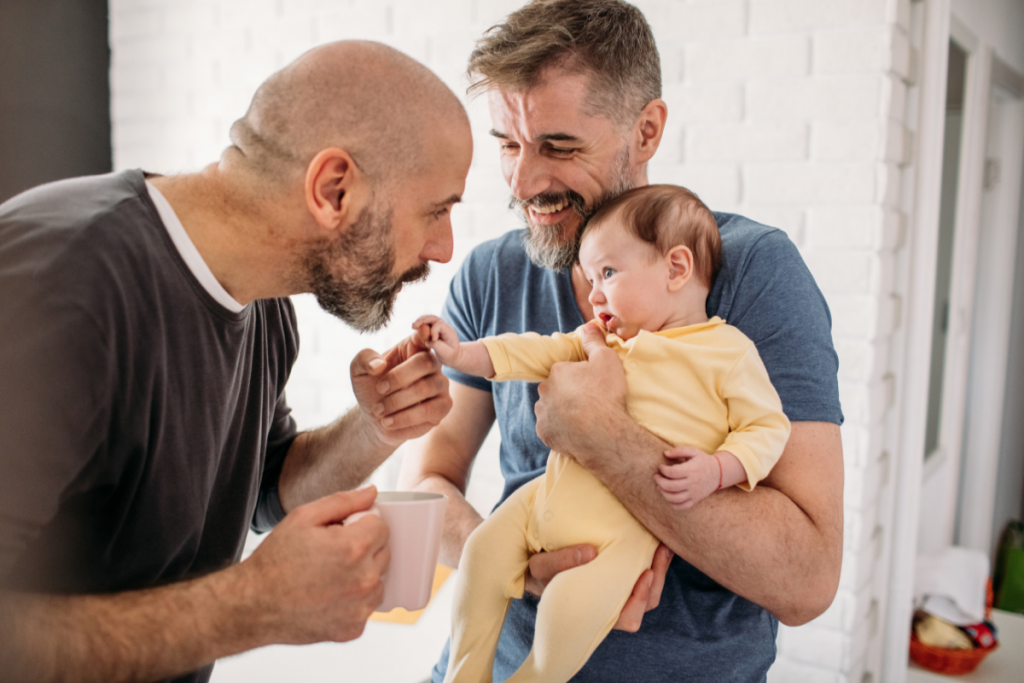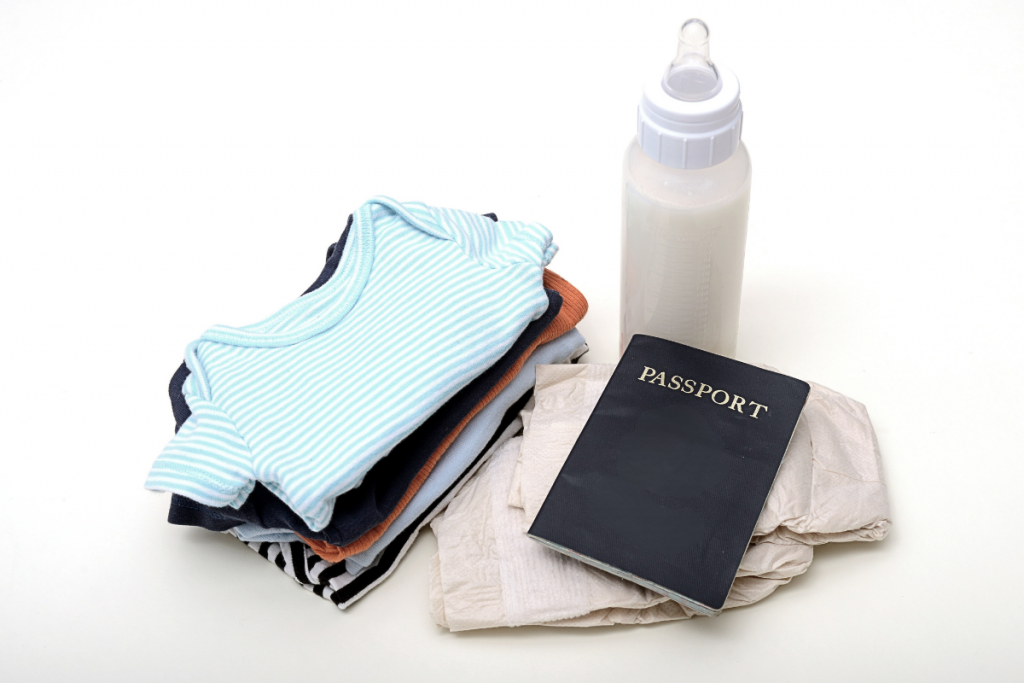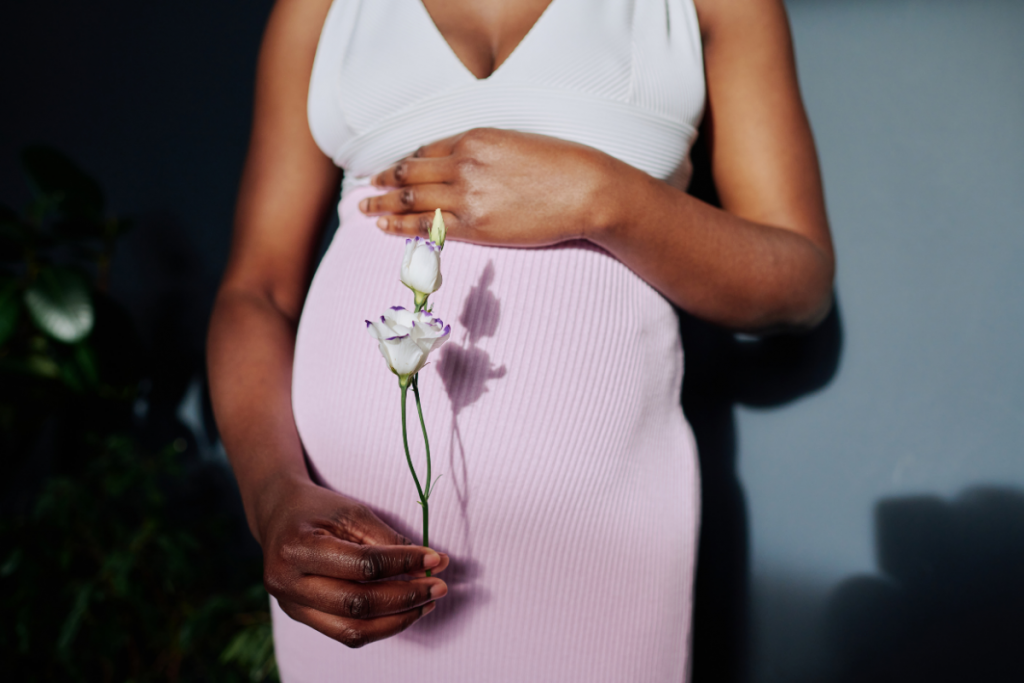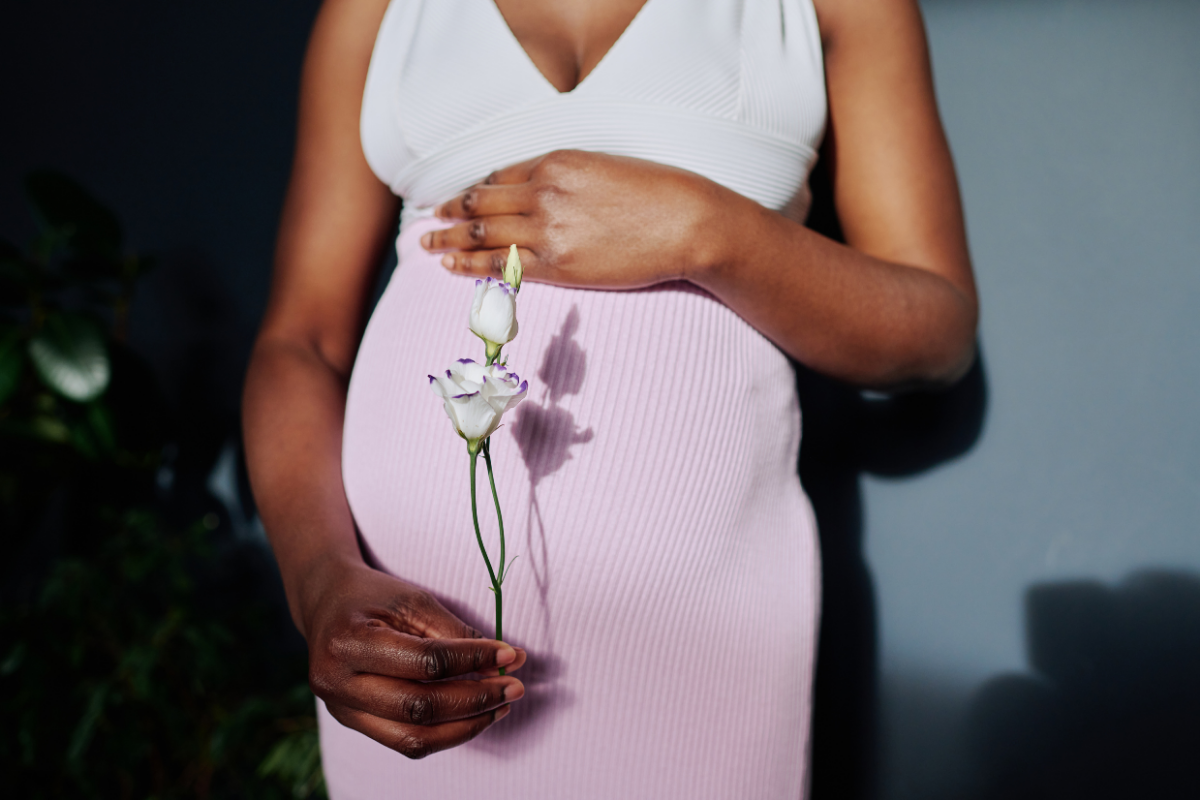“When Talulah and Duke arrived, carried by our surrogate, it felt like every obstacle had been worth it.” For Michael and Wes, known to their 40,000-plus Instagram followers as TwoDadsUK, sharing their journey of becoming fathers via surrogacy has been both a personal triumph and a campaign for change. Their platform now supports other families through “My Surrogacy Journey,” an organisation offering guidance and advocacy.
Across the world, surrogacy is reshaping how queer families grow. In the UK, it is often the only realistic route for cisgender, transgender, and non-binary couples assigned male at birth who hope for a biological connection, or for other transgender and non-binary parents for whom pregnancy is medically or physically impossible. Some LGBTQIA+ couples also explore surrogacy alongside reciprocal IVF or adoption.
But the path is rarely straightforward. UK law requires surrogacy to be altruistic: surrogates may be reimbursed for reasonable expenses but cannot be paid for their time or service. This leaves many families looking abroad to countries where commercial surrogacy is regulated, such as the United States, Canada, Georgia and Colombia. Costs vary dramatically — from about £30,000 in Georgia to well over £100,000 in parts of the US — covering medical care, legal fees and agency costs.
The financial and emotional weight of such a commitment is not lost on other LGBTQ+ parents documenting their stories online. David Heath and Sam Arblaster, the “Scouse Dads” from Liverpool, have spoken openly about the years of saving, paperwork and waiting that went into their own surrogacy journey. Meanwhile, influencer Carl Cunard has used his platform to discuss the hopes and backlash that can accompany planning for surrogacy as a same-sex couple. Their openness reflects a wider reality: beyond the statistics, surrogacy is lived as a marathon of resilience, resourcefulness and love.
Families in the Spotlight

Public figures have helped highlight both the rewards and challenges of surrogacy. “Having children changed everything for the better,” Elton John reflected, after welcoming sons Zachary and Elijah through surrogacy in the United States with husband David Furnish. Olympic diver Tom Daley and his husband Dustin Lance Black welcomed sons Robbie and Phoenix via surrogacy. Daley has campaigned for UK legal reform, noting: “The laws here in the UK don’t necessarily protect the surrogate or the intended parents,” in contrast with regulated systems abroad.
Transgender parents Jake Graf and Hannah Winterbourne shared their journey on Channel 4’s Our Baby: A Modern Miracle, highlighting both the joy of raising their daughter Millie and the legal and social barriers they faced. Jake said: “Trans people are made to feel they are not worthy,” underscoring the extra hurdles LGBTQ+ parents encounter.
Other LGBTQ+ families report similar challenges: balancing financial pressures, legal uncertainties, and emotional strain while managing careers, medical appointments, and family expectations. These experiences highlight both the hope driving LGBTQ+ family building and the systemic barriers still in place. Doug and Sanjay Sood-Smith of The Travelling Gays began their surrogacy journey during the pandemic with Circle Surrogacy and Illume Fertility in the US. Their first child was born in 2021. Doug reflected: “We set ourselves unrealistic time frames and it only led to stress and disappointment.”
The Legal Maze of International Surrogacy

Cross-border surrogacy adds significant legal complexity. The Hague Conference on Private International Law has highlighted the lack of harmonised rules and the precarious position this creates for parents and surrogates. On returning to the UK, intended parents must often apply for parental orders or even adoption before being legally recognised as their child’s parents.
A parental order legally transfers parenthood from the surrogate to the intended parents. The process can take several months, and until it is granted, the surrogate is the child’s legal parent. Courts consider factors such as the surrogate’s consent, the child’s welfare, and adherence to UK law. Delays, even minor ones, can cause significant stress for families awaiting legal recognition.
The Law Commission of England and Wales has proposed reforms, including immediate recognition of intended parents at birth and a regulated domestic pathway with stronger protections for surrogates. These reforms aim to reduce legal uncertainty and improve safeguards, but they have not yet become law.
Ethics and Human Rights

Surrogacy raises ethical questions. Critics argue that commercial arrangements can exploit women in lower-income countries, where economic pressures may influence decisions. The COVID-19 pandemic exposed this risk starkly, when babies born to Ukrainian surrogates were stranded as borders closed, leaving parents and surrogates in limbo. Research such as Cross-Border Reproductive Care: A Future Research Agenda highlights the urgent need for clearer international guidelines and better data, as many intended parents continue to face confusion and delays over parental orders, recognition, and travel restrictions when working with agencies overseas.
Supporters contend that with proper regulation, surrogacy can be positive and collaborative. A 2019 Canadian study led by van den Akker in Reproductive BioMedicine Online found that most surrogates reported satisfaction, especially in arrangements with same-sex couples, citing strong relationships and a sense of contribution. Many intended parents describe a deep bond with the surrogate and an appreciation of the shared journey.
Support Networks and Resources

Support organisations are essential to making surrogacy accessible. Men Having Babies runs the Gay Parenting Assistance Program, distributing over a million dollars annually in grants and discounts to intended parents. UK-based charities such as Surrogacy UK and the British Fertility Society provide guidance on legal processes, counselling, and matching intended parents with surrogates.
Many families also rely on online communities and social media groups for practical advice and emotional support. These networks help couples and single parents share experiences, navigate international agencies, and prepare for the legal and emotional complexities of surrogacy.
Looking Ahead
From Elton John and David Furnish to Tom Daley, Jake Graf, Hannah Winterbourne, and The Travelling Gays, personal stories have moved surrogacy from the sidelines to the heart of the LGBTQ+ family conversation. These journeys show that queer families are built on resilience, joy, and love, even when laws and systems lag behind.
While surrogacy still needs reform, every story shared chips away at prejudice and opens doors for future parents. LGBTQ+ families are defined not by obstacles, but by the communities they create, the love they share, and the futures they imagine. As law and policy catch up, these stories will continue to reshape not only family life but also how society understands parenthood itself.
